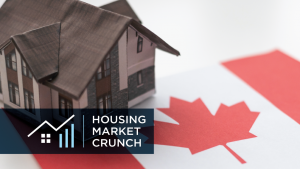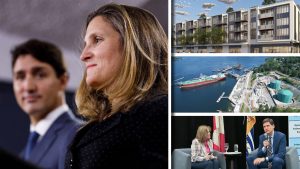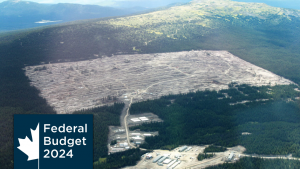The process for updating Canada’s National Building Code (NBC) every five years has hit a roadblock. The 2020 NBC remains tied up in consultations and committee meetings, with no announcement update since July.
It’s a continuing frustration for provinces and municipalities who view climate change and GHG reduction in construction as a priority, leaving them without guidance as to what new guidelines will be set at the federal level. The absence of an updated code puts the onus on them, together with project owners, designers and builders, to set their own higher-level objectives and work within environmental and energy-efficiency standards offered through certifications like LEED and Passive House.
The sub-committees now working on the 2020 NBC are not getting much help from the political side. No one ministry or minister has stepped forward to take direct responsibility for ensuring the 2020 NBC meets the demands and expectations of today’s environmental challenges.
As reported in the Globe & Mail, Environment Minister Steven Guilbeault has, “conceded that the government will have to make ‘some assumptions’ about the emissions-reducing effect of policies it hasn’t fully developed yet.”
That’s not very helpful for developing an NBC now two years overdue.
While Guilbeault goes about his planned series of “consultations,” pressure is mounting from a number of groups demanding more than talk and delayed code decisions.
Representing over 400 municipal councillors, mayors and regional directors, the national network Climate Caucus has appealed to Environment and Climate Change Canada (ECCC), NRCAN, and Innovation, Science and Industry, all agencies within the federal government.
“The lengthy timeline to update the NBC is unacceptable and needs to be significantly improved. Right now, the NBC is updated every five years, with another one year for provinces to adopt the code, followed by another year for the development community to implement the code.”
Specifically, Climate Caucus has asked these federal agencies to develop, “a highly energy-efficient and zero-carbon, outcomes-based standard to transform the buildings sector.”
They see the need for a code that takes a whole building approach to address energy efficiency, operational and embodied carbon reductions, avoiding the future use of fossil fuels and including with it a verification and reporting process.
While few would publicly argue against improving energy efficiency and the reduction of operational and embodied carbons, some bristle at the mention of verification processes to confirm the performance outcomes promised by designers and completed by builders.
Certain industry representatives claim verification will add to the cost of a new or renovated home and that some regions don’t even have access to specialists able to carry out such verification. Others cite the complications involved with the verification of larger projects. Other concerns repeatedly expressed include a need for improved builder training and education, and suggestions that tighter building envelopes could increase interior radon gas levels.
Rob Bernhardt, former CEO of Passive House Canada, and today a sustainability consultant, believes those comments are misguided.
First, they miss the potential of what a verification process could mean. Low barriers to entry for the verification industry will open new green career opportunities that can grow to meet the market demands of any location. He says measured metrics could also include water use, which together with energy efficiency, could be used as a foundation for both taxes and incentive programs.
Furthermore, there is no scientific basis to claims that buildings built to standards like Passive House result in higher interior radon gas levels. In fact, studies have established the opposite.
As for builder education, leading architects have pointed out that builders don’t need to learn anything new. They simply need to build what is designed. That implicitly requires a design-for-performance outlook reflected in the NBC.
“We’re acutely aware of the inertia to maintain the status quo,” says Climate Caucus. “We need to move past naming our challenges and find solutions that align with science and centre on health, and not be held to the lowest common denominator.”
John Bleasby is a Coldwater, Ont.-based freelance writer. Send comments and Climate and Construction column ideas to editor@dailycommercialnews.com.











Recent Comments
comments for this post are closed